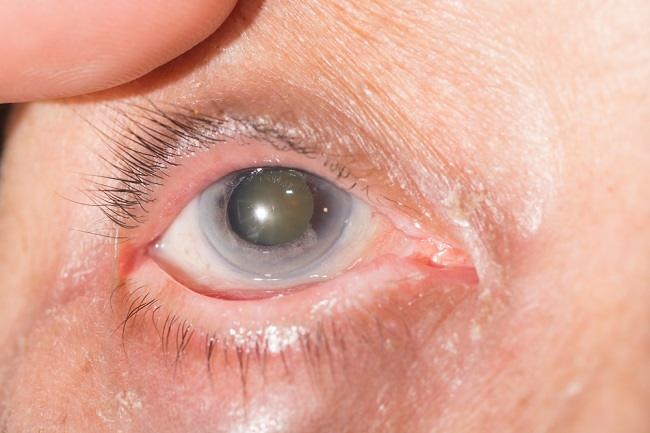Liothyronine is a drug to treat hypothyroidism or a lack of thyroid hormone in the body. Hypothyroidism can cause interference with metabolism and heart function.
Liothyronine is a hormone replacement drug that works by providing thyroid hormone when the thyroid gland is not functioning normally. In addition to being used to treat hypothyroidism, liothyronine can also be used to treat goiter and diabetes myxedema.

Trademarks of liothyronine:-
What is Liothyronine?
| group | Thyroid hormone replacement therapy drugs |
| Category | Prescription drugs |
| Benefit | Treating hypothyroidism and treating some types of goiter |
| Used by | Adults, children and seniors |
| Liothyronine for pregnant and lactating women | Category A:Controlled studies in pregnant women have not shown any risk to the fetus, and it is unlikely that harm to the fetus is possible. Liothyronine can be absorbed into breast milk. If you are breastfeeding, do not use this medicine without telling your doctor first. |
| Drug form | Tablet |
Warnings Before Using Liothyronine:
- Do not use liothyrinine if you have a history of allergies to this drug.
- Tell your doctor if you are taking certain medications, especially anticoagulants, anticonvulsants, diabetes medications, birth control pills, antiarrhythmic drugs, or antidepressants.
- Tell your doctor if you have a history of adrenal gland disorders, hypertension, diabetes, blood clotting disorders, or heart disease, such as chest pain, heart failure, irregular heartbeat, and heart attack.
- Tell your doctor if you are pregnant, breastfeeding, or planning a pregnancy.
- Tell your doctor if you are planning any surgery, including dental surgery.
- See your doctor right away if you have an allergic reaction or overdose after using this medicine.
Dosage and Instructions for Use of Liothyronine
The dose of liothyronine is different for each patient. The following is the distribution of liothyronine doses based on the type of disease you want to treat:
Condition: hormone replacement therapy in hypothyroidism
- MatureInitial dose: 25 mcg per day. The dose may be increased to 60–75 mcg per day in 2–3 divided doses.
- Children
Maintenance dose
Children <1 year: 20 mcg per day
Children 1–3 years: 20 mcg per day
Children > years: 25–75 mcg per day
- seniors: 5 mcg per day. The dose can be increased by 5 mcg every 2 weeks
Condition: goiter
- Mature
Maintenance dose: 75 mcg per day
Condition:myxedema
- Mature
Maintenance dose: 50–100 mcg per day
Condition:T3 suppression test
- Mature: 75–200 mcg daily for 7 days
How to Use Liothyronine Correctly
Follow the doctor's advice and read the instructions on the medicine package before using liothyronine. Do not increase or decrease the dose without consulting your doctor first.
Liothyronine can be taken 30 minutes before a meal or 2 hours after a meal. Swallow the tablet whole with the help of water. It is recommended to take liothyronine tablets at the same time every day so that thyroid hormones remain normal.
Do not stop taking liothyronine suddenly without consulting your doctor first.
This medicine should be stored at room temperature. Avoid exposure to direct sunlight and keep out of reach of children.
Liothyronine Interactions with Other Drugs
Liothyronine has the potential to cause interactions with a number of drugs when used together. Here are some interactions that can occur:
- Decreased effectiveness of sodium iodide I-131
- Increased risk of bleeding if used with anticoagulant drugs, such as apixaban, warfarin, or heparin
- Increased risk of hypertension and tachycardia when used with ketamine
- Decreased effectiveness of liothyronine when used with antacid medications, iron, or anticonvulsant medications, such as carbamazepine
- Decreased effectiveness and interfere with blood sugar levels when used with tolazamide and diabetes medications, such as metformin or glipizide
- Decreased effectiveness of liothyronine when used with levonorgestrel or ethinylestradiol
- Changes in the effect of liothyronine and amitriptylin when used together
Liothyronine Side Effects and Dangers
Some of the side effects that can occur after using liothyronine are:
- Headache
- Nausea and vomiting
- Diarrhea
- Hair loss
- Weight loss
- Insomnia
- Menstrual cycle changes (in women)
Check with a doctor if the complaints mentioned above do not subside or get worse. See your doctor right away if you have an allergic reaction to a drug or experience more serious side effects, such as:
- Shortness of breath, difficulty breathing, or wheezing
- Chest pain
- Fatigue
- Excessive sweating
- Swelling in the legs and feet
- Fast and irregular heartbeat (arrhythmia)
- Hypotension or low blood pressure
- Tremor









